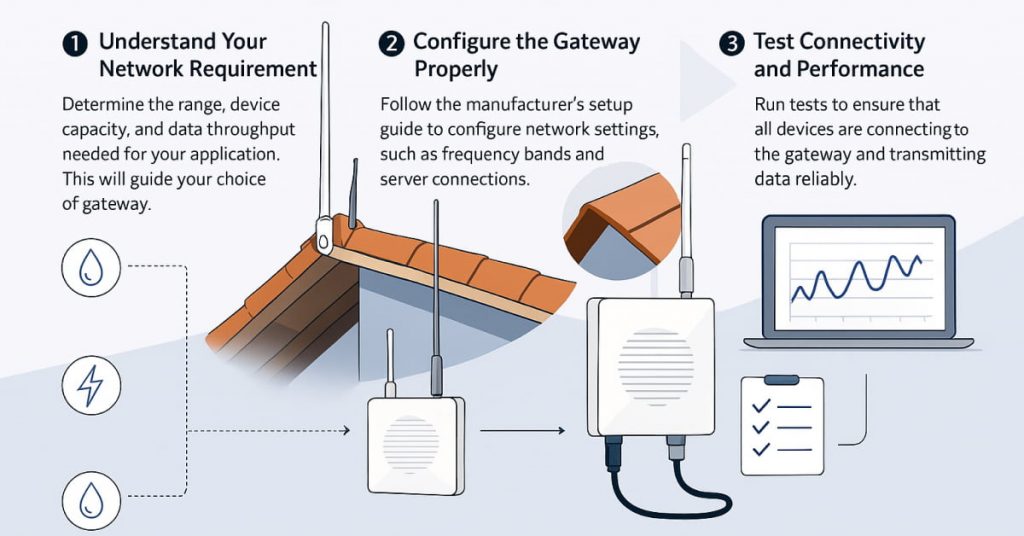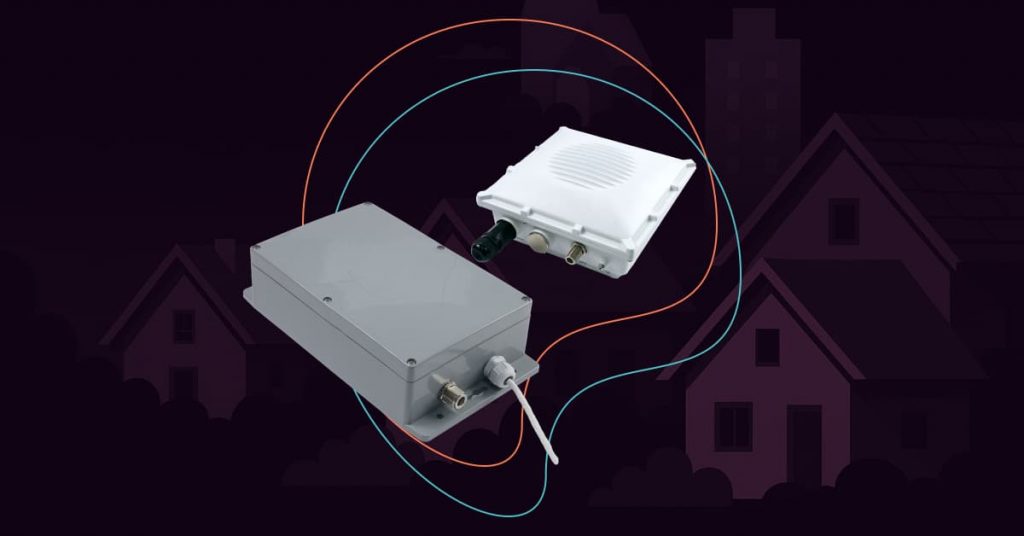
A Beginner’s Guide to Understanding LoRaWAN Gateways
As IoT (Internet of Things) applications continue to expand, efficient and reliable communication systems are essential for managing devices and collecting data. LoRaWAN (Long Range Wide Area Network) gateways have become a cornerstone of modern IoT infrastructure, offering a low-power, long-range solution for wireless communication. This guide provides an introduction to LoRaWAN gateways, their functionality, and how they benefit utility and industrial IoT systems.
What Are LoRaWAN Gateways?
LoRaWAN gateways are devices that connect IoT sensors and devices to a central network, enabling long-range data communication. They act as intermediaries between local IoT devices and cloud-based servers, ensuring that data is transmitted reliably and efficiently.
Key Features of LoRaWAN Gateways:
- Long-Range Communication: Supports distances of up to 15 kilometers in rural areas and several kilometers in urban settings.
- Low Power Consumption: Ideal for battery-powered IoT devices, ensuring long operational lifespans.
- Scalability: Accommodates thousands of devices within a single network.

How Do LoRaWAN Gateways Work?
LoRaWAN gateways use LoRa (Long Range) modulation to transmit data from IoT devices to a centralized server. The process involves three key steps:
Data Collection: Sensors and devices collect data, such as utility consumption or environmental metrics, and transmit it via LoRa technology.
Data Relay: The gateway receives these signals and forwards them to a network server using standard internet protocols (e.g., Ethernet, Wi-Fi, or cellular).
Data Processing: The server processes the data and makes it accessible through applications or dashboards for real-time monitoring and decision-making.
Benefits of LoRaWAN in IoT Utility Systems
1. Wide Coverage with Minimal Infrastructure
LoRaWAN gateways provide extensive coverage, reducing the need for multiple gateways in a given area. This makes them cost-effective for applications like utility management and industrial monitoring.
2. Energy Efficiency
The low-power design of LoRaWAN ensures long battery life for connected devices, minimizing maintenance and operational costs.
3. Secure Data Communication
LoRaWAN includes encryption protocols that protect data during transmission, ensuring the security and privacy of sensitive information.
4. Scalability for Large Networks
LoRaWAN’s ability to support thousands of devices within a single network makes it suitable for smart cities, industrial IoT systems, and large-scale utility management.

Beginner Tips for Setting Up LoRaWAN Gateways
Understand Your Network Requirements
Determine the range, device capacity, and data throughput needed for your application. This will guide your choice of gateway.
Position the Gateway Strategically
Place the gateway in a location that maximizes signal coverage, avoiding obstructions like buildings or dense foliage.
Configure the Gateway Properly
Follow the manufacturer’s setup guide to configure network settings, such as frequency bands and server connections.
Test Connectivity and Performance
Run tests to ensure that all devices are connecting to the gateway and transmitting data reliably.
Top Applications of LoRaWAN Gateways
Utility Monitoring
LoRaWAN gateways are widely used in water, gas, and electricity management systems to:
- Monitor consumption in real time.
- Detect anomalies, such as leaks or excessive usage.
Industrial IoT Applications
In factories and warehouses, LoRaWAN supports:
- Asset tracking.
- Predictive maintenance for machinery.
Smart Cities
LoRaWAN gateways enable smart city solutions, such as:
- Smart lighting systems that adjust based on ambient conditions.
- Waste management systems with real-time bin monitoring.
Best LoRaWAN Gateways for IoT Beginners
Jooby LoRaWAN Gateways
- Features: Easy setup, long-range communication, and robust performance.
- Applications: Ideal for utility and industrial monitoring.
- Explore: Jooby LoRaWAN Gateways
Compact Indoor Gateways
- Features: Designed for small-scale applications, such as residential utility monitoring.
- Benefits: Cost-effective and easy to deploy.
Outdoor Industrial Gateways
- Features: Rugged design for harsh environments, with high device capacity.
- Applications: Suitable for large industrial sites and smart city infrastructure.
How LoRaWAN Improves Data Communication Efficiency
Reliable Long-Range Connectivity
LoRaWAN gateways ensure consistent data transmission over vast distances, reducing the need for multiple network nodes.
Low Operational Costs
The combination of low power consumption and minimal infrastructure requirements results in significant cost savings.
Flexibility Across Applications
From small-scale deployments to expansive industrial networks, LoRaWAN can be tailored to meet diverse needs.
Where to Buy Affordable LoRaWAN IoT Devices
For reliable and affordable LoRaWAN gateways, explore:
Final Thoughts
LoRaWAN gateways are a vital component of modern IoT systems, offering unparalleled efficiency, scalability, and reliability. Whether you’re monitoring utilities, managing industrial assets, or building smart city infrastructure, these gateways provide the connectivity and insights needed to optimize operations.
Start your IoT journey with Jooby’s LoRaWAN solutions and unlock the potential of long-range, low-power communication.
